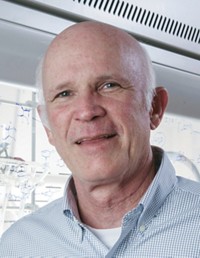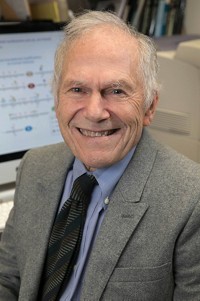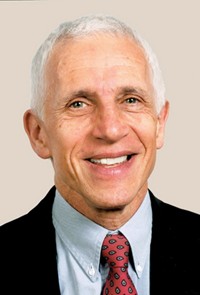Advertisement
Grab your lab coat. Let's get started
Welcome!
Welcome!
Create an account below to get 6 C&EN articles per month, receive newsletters and more - all free.
It seems this is your first time logging in online. Please enter the following information to continue.
As an ACS member you automatically get access to this site. All we need is few more details to create your reading experience.
Not you? Sign in with a different account.
Not you? Sign in with a different account.
ERROR 1
ERROR 1
ERROR 2
ERROR 2
ERROR 2
ERROR 2
ERROR 2
Password and Confirm password must match.
If you have an ACS member number, please enter it here so we can link this account to your membership. (optional)
ERROR 2
ACS values your privacy. By submitting your information, you are gaining access to C&EN and subscribing to our weekly newsletter. We use the information you provide to make your reading experience better, and we will never sell your data to third party members.
People
Stephen Harrison Wins Welch Award
Awards: Harvard Medical School professor’s macromolecular work enables new treatments
by Susan J. Ainsworth
May 20, 2015
For his groundbreaking work at the intersection of chemistry and biology, Stephen C. Harrison, a professor of biological chemistry and molecular pharmacology and of pediatrics at Harvard Medical School, will receive the 2015 Welch Award in Chemistry.
The Welch Foundation, based in Houston, grants the $300,000 award annually to honor lifetime achievement in basic research in chemistry.
Harrison, 71, studies complex macromolecular structures such as proteins and nucleic acids to understand their biological functions. “His breakthroughs in basic research have improved our understanding of the chemistry that underlies biological systems and led to important advances in preventing and treating disease,” says Wilhelmina E. (Beth) Robertson, chair of the Welch Foundation. Harrison’s work on the mechanisms of viruses and the human immune response to viruses have enabled discoveries that may yield better vaccines and treatments for diseases such as the common cold, influenza, HIV, West Nile virus, dengue and yellow fevers, and Ebola.
“Harrison has transformed our understanding of large macromolecular assemblies that are essential to the chemistry of life,” says Peter B. Dervan, chair of the Welch Foundation’s Scientific Advisory Board. “He has pioneered new methods in data collection and structure determination, tackling increasingly complex molecules. His work has had implications for numerous fields, including virology, DNA transcriptional regulation, signal transduction, vesicular trafficking, and cell division.”
As this year’s Welch awardee, Harrison says he is particularly pleased to be recognized as a chemist. “Structural biologists are translators; we seek to describe the phenomena of cell biology in the language of chemistry. So I am both thrilled and somewhat awed to find myself considered a real practitioner of chemistry and included in a succession of remarkable previous awardees,” he says.
Harrison has garnered many prior accolades, including Columbia University’s Louisa Gross Horwitz Prize, the ICN International Prize in Virology, the Paul Ehrlich & Ludwig Darmstaedter Prize, and the Gregori Aminoff Prize of the Royal Swedish Academy of Sciences.
Harrison is a member of the National Academy of Sciences and the American Philosophical Society, a fellow of the American Academy of Arts & Sciences, and a foreign member of the European Molecular Biology Organization and of the Royal Society of London.
Harrison earned a B.A. degree in chemistry and physics in 1963 and a Ph.D. in biophysics in 1968, both from Harvard University. He has served on the Harvard faculty since 1971.






Join the conversation
Contact the reporter
Submit a Letter to the Editor for publication
Engage with us on Twitter